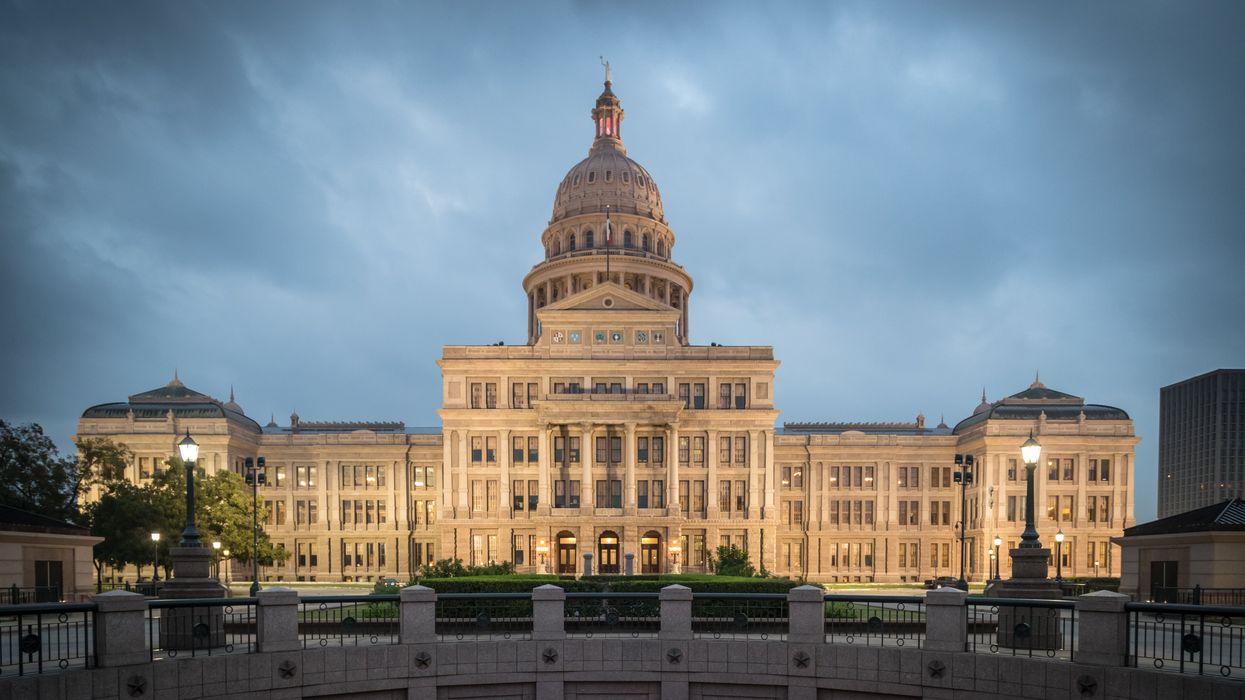Mouton is an assistant professor of English at Huston-Tillotson University. Raval is a documentary filmmaker. Rodriguez is an assistant professor of history at the University of Texas at Austin. Schmitt directs the Children’s Language, Literacy, and Learning Lab at UT Austin. Ward is the CEO of 2Ward Equity Consulting. They were public voices fellows with The OpEd Project before UT Austin’s participation in the program was canceled.
The recent attack on Claudine Gay, Harvard University’s first Black female president, is one of many attempts by elements of the right wing to radicalize higher education by censuring diverse voices. Another — the Texas Legislature’s ban on diversity, equity, and inclusion efforts in public institutions of higher education — went into effect on Jan. 1.
Senate Bill 17 states that any program or policy that affords “special benefit” to marginalized groups must end. But the law fails to address the systemic barriers and historic discrimination that necessitated development of the DEI programs in the first place. As such, SB-17 is gatekeeping knowledge access and threatening the civil liberties of Texas citizens. It should serve as a warning to other states.
In 2008, 85 percent of experts writing in major U.S. commentary forums were men (as identified by pronouns) and overwhelmingly white and cisgender, even though that demographic only represents 9 percent of the global community. White men, in other words, had an influence in public knowledge disproportionate to their representation in society — or for that matter, in academia.
The Public Voices Fellowship, a national initiative of The OpEd Project, partners with top universities and foundations across the United States to expand the number of underrepresented experts in the media, with the goal of broadening public knowledge and access. For nearly a decade, it helped scholars across the University of Texas at Austin join important national conversations. According to Katie Orenstein, founder and CEO of The OpEd Project, the fellowship is motivated by the belief “that people of all genders, identities, and backgrounds are essential to the story of our future,” and, therefore, SB-17 mandated its cancellation.
Stories that are told publicly affect policies, community conversations, research initiatives, creative works and more. As fellows of the ninth cohort of The Public Voices Fellowship at UT Austin, we have experienced the program’s impact firsthand. Since August, members of our cohort have published pieces on book bans, personalized AI, trauma and learning loss, child sexual trauma, deadly immigration policies, and organ transplant equity, as well as directed a documentary highlighting Asian Black solidarity and intergenerational exchange. We are shocked by the fellowship’s disruption and concerned about how this anti-DEI legislation will impact whose stories are allowed to shape our world.
Certainly we need informed experts from a myriad of backgrounds and experiences to solve the world’s most pressing issues. The problem comes when one group’s experiences are privileged over others. The voices of white, cisgender men have never been silenced. They continue to publish the majority of all op-eds.
In a fully liberated and just society, DEI programs would not be needed. People of all identities would experience equal opportunities to succeed and share their expertise. We do not yet live in that world. Underrepresented experts don’t need DEI programs to bypass determinations of merit but rather to bypass longstanding, discriminatory practices. Because DEI programs threaten the comforts of the most privileged in our society, SB-17 was passed — directly diminishing access for those representing the global majority to create and share knowledge.
SB-17 has already had a profound impact on higher education in Texas. Leaders at the helm of university inclusion efforts have lost their jobs, faculty are leaving the state, and recruitment of faculty is tenuous, threatening the integrity of top-tier research institutions and limiting representation for students. Even though research and teaching are technically protected from the new law, faculty are being asked to strip all evidence of inclusive practices from their websites out of an abundance of caution, casting doubt on whether culturally responsive scholarship is actually protected and threatening the integrity of students’ academic experiences, safety and belonging.
This attack on knowledge access is not confined to Texas. Since the summer of 2023, the Supreme Court has struck down affirmative action, five states have passed legislation ending DEI programs and another 40 bills across 22 states have restricted DEI initiatives at public universities. The eradication of support for anyone other than white, straight, cisgendered males has been reframed as a “ return to merit-based decisions ” — language that obscures a host of advantages that perpetuate centuries of inequity and discrimination.
SB-17 ensures those in power have unhindered opportunities to shape our society’s narrative by eliminating the voices of experts with different lived experiences and serves as a warning to citizens in other states. If we want to live in a just and informed society, then higher education institutions must be allowed to protect and promote the voices of their entire community. Without programs like the Public Voices Fellowship, reactionary extremists will continue to wield their agendas using legislation to silence the global majority and preserve white institutional power.
Anti-DEI legislation is a threat to democracy and must be denounced. Our voices matter now more than ever. We have an opportunity in 2024 to give careful consideration as we choose leaders, to choose whose voices we hear. To quote The OpEd Project, “The stories we tell become the world we live in.”



















